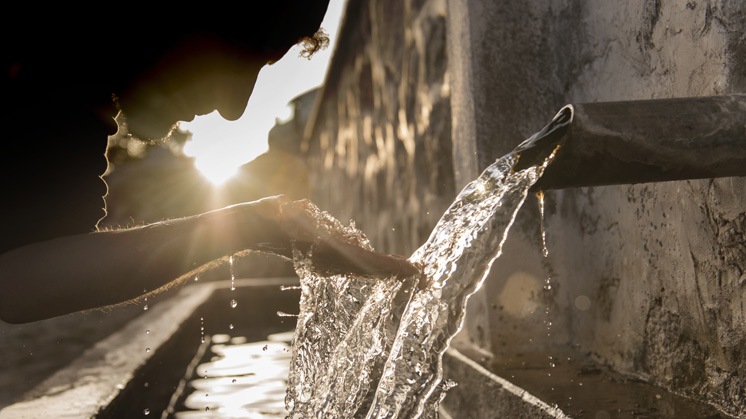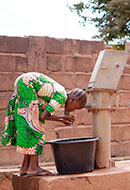Water sustainability management

In 2015, the United Nations (UN) warned that Earth will have a 40% water deficit by 2030 if it cannot manage to change its current consumption habits. Despite the progress made in relation to responsible use and improvement of the infrastructures of this natural resource, demographic growth is still a huge challenge, in which society, governments and companies must collaborate to achieve the necessary results.
Human and commercial consumption, agricultural and industrial activity, the production of energy and everyday foodstuffs... all of these require large amounts of water, which is now threatened by contamination and climate change. It is vital to raise the awareness on the need to efficiently manage water resources, guaranteeing their quality and preventing their degradation, with the purpose of not putting at a risk their availability in the future.
Have you heard about the water footprint?
It is defined as the amount of freshwater used to produce the goods and services consumed by the citizens of a country, by industry or individuals, which represents a much higher indirect consumption than we would ever imagine.

cotton t-shirt


hamburger

of petrol

of paper

a computer

bottle

shower


per Spanish citizen
 SEE INFOGRAPHIC: Have you heard about the water footprint? [PDF] External link, opens in new window.
SEE INFOGRAPHIC: Have you heard about the water footprint? [PDF] External link, opens in new window.
The protection and sustainable consumption of water is one of the pillars of the Sustainable Development Goals (SDGs) of the United Nations, which is aimed at making sure that the entire planet has access to clean and uncontaminated water that has been managed with a responsible approach.
In line with the SDGs, Iberdrola performs comprehensive controls on the specific use and consumption of this resource. The company is positioned as one of the utilities with the best water productivity (revenues/water used) *. The goal of the company is to reduce the intensity of water use/production by 50% in 2030 compared to 2019. However, the protection of this resource also requires a high commitment to respect biodiversity.

SDG 6: Clean water and sanitation
We are one of the utilities with the best water productivity.

Water pollution
This resource is essential for the survival of living beings.

Water security
Climate change is undermining water security on the planet.

World Water Day
A global initiative to highlight the need to combat its scarcity.
Circular economy model at the Iberdrola Group
At Iberdrola, we work to be more respectful of nature in our three strategic sustainability areas: climate action, biodiversity protection, and circular economy.
For this reason, our sustainable business model is based on the circular economy model, a system for making the most of resources in which priority is given to reducing the use of new raw materials through efficiency in processes, product life extensions, and a firm commitment to the reuse and recycling of materials.




